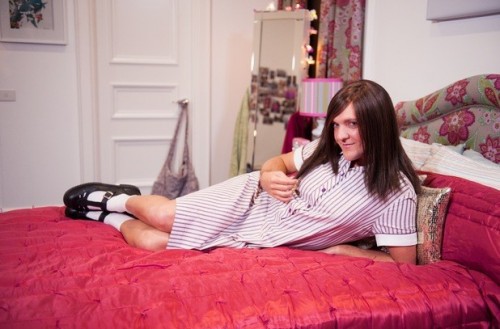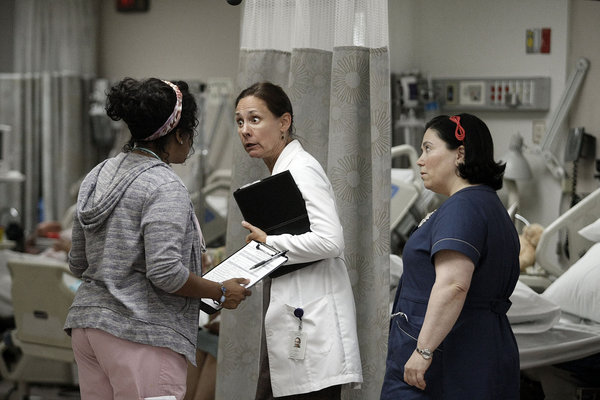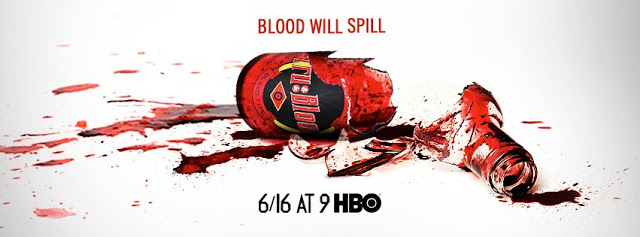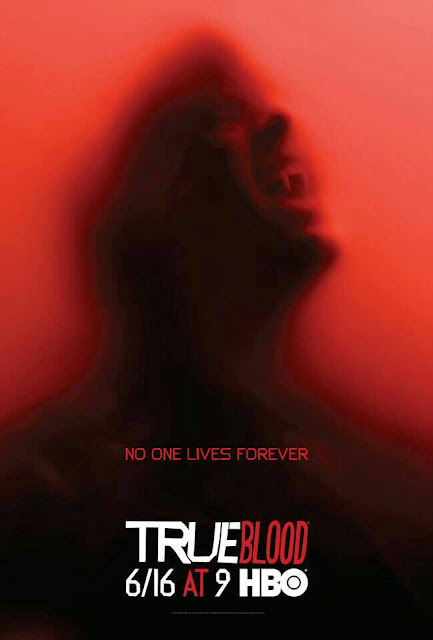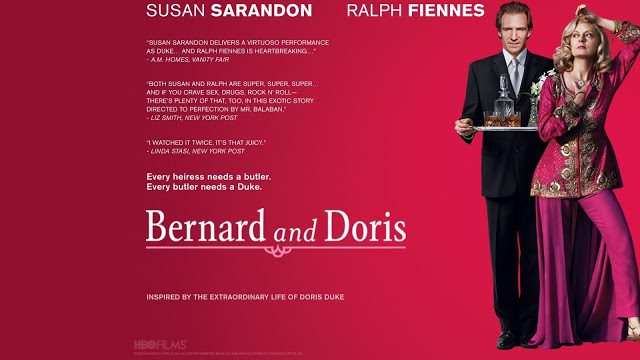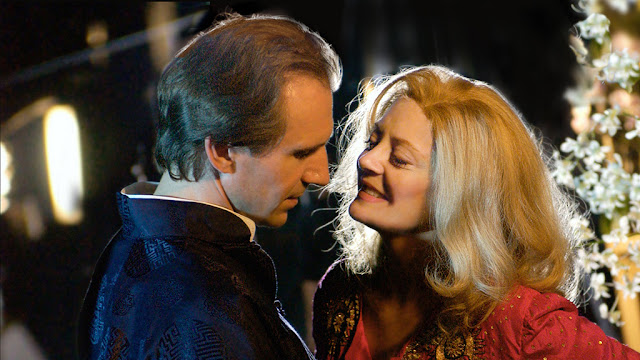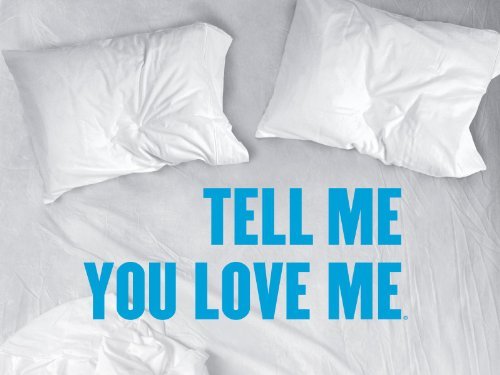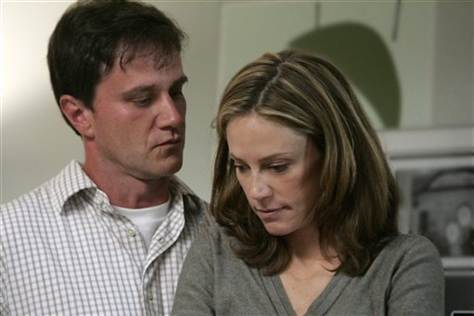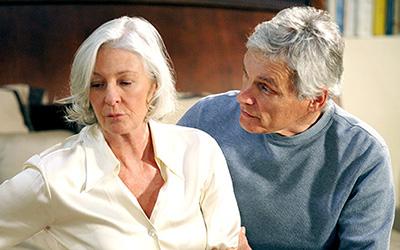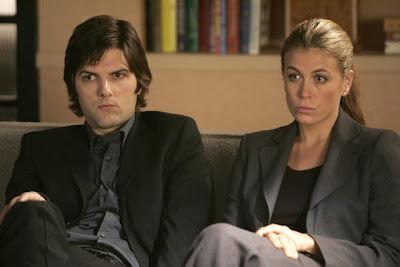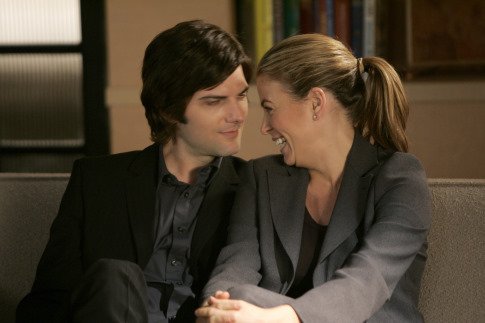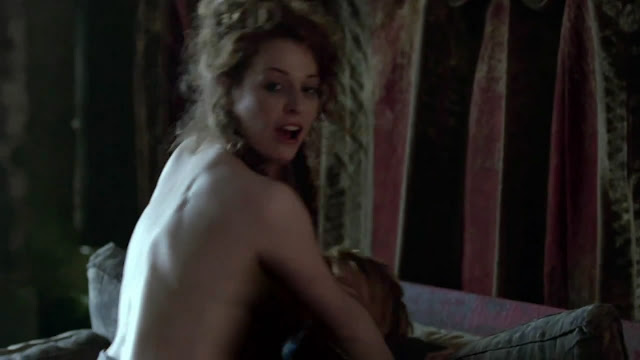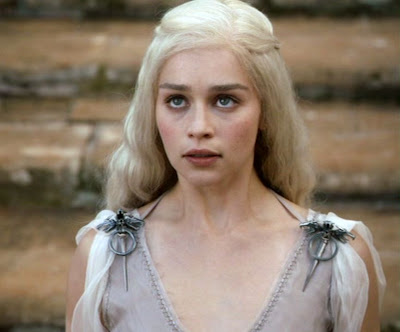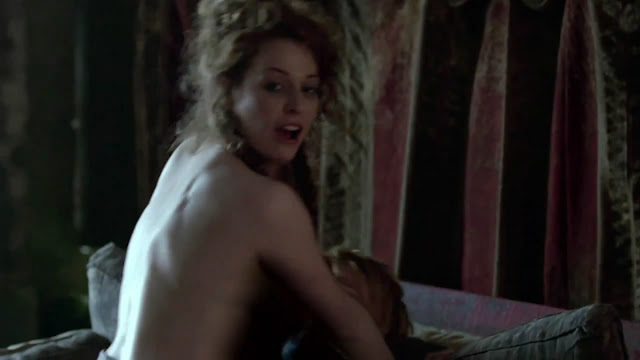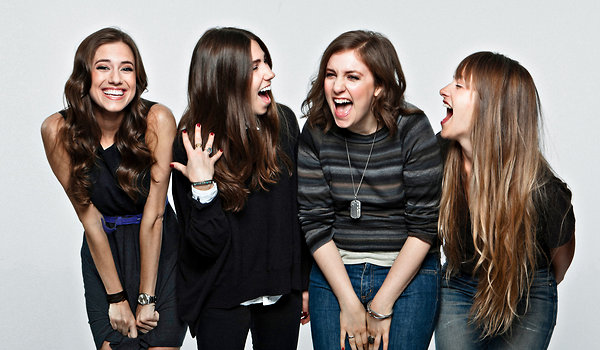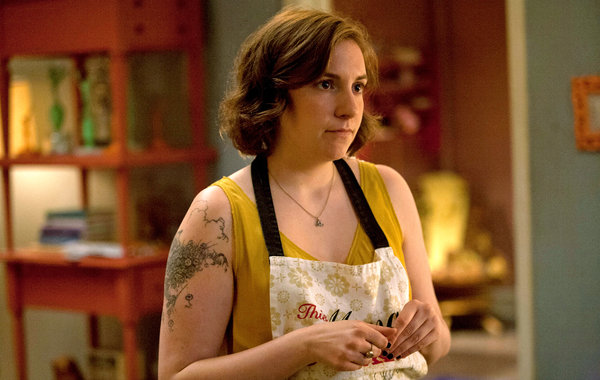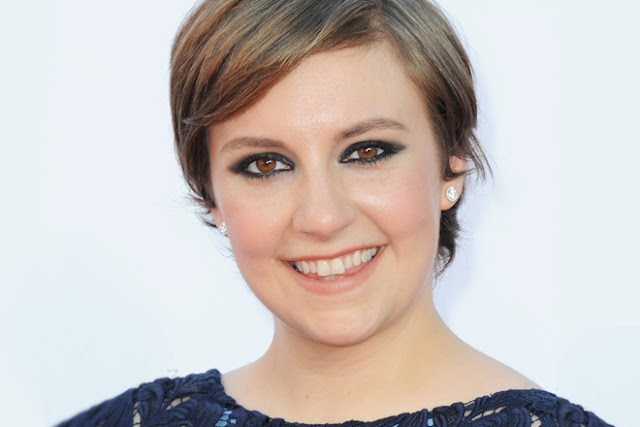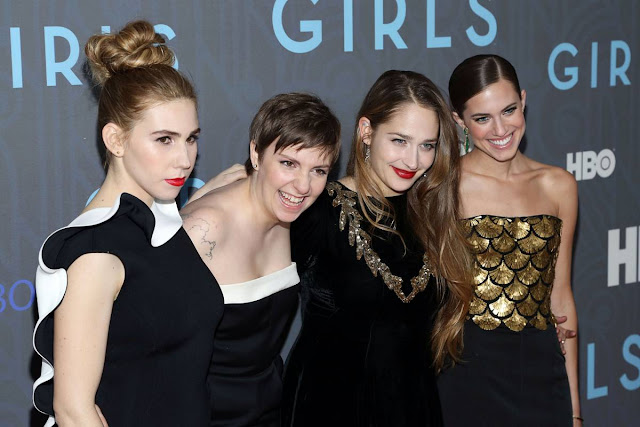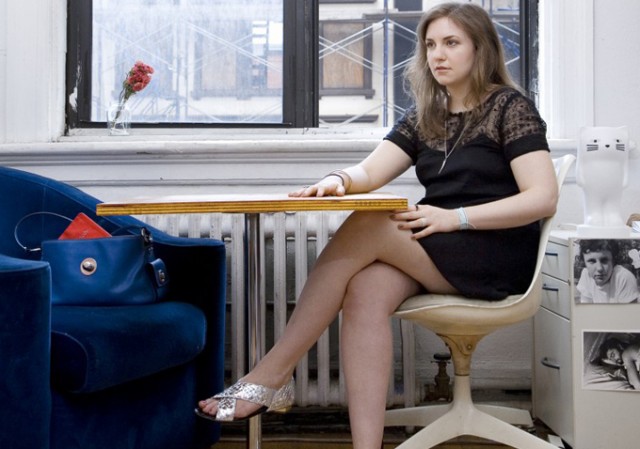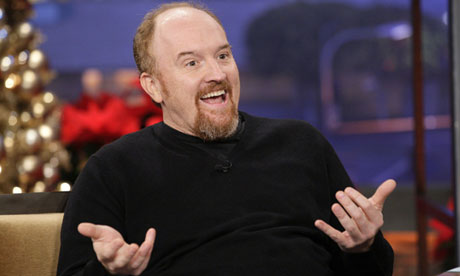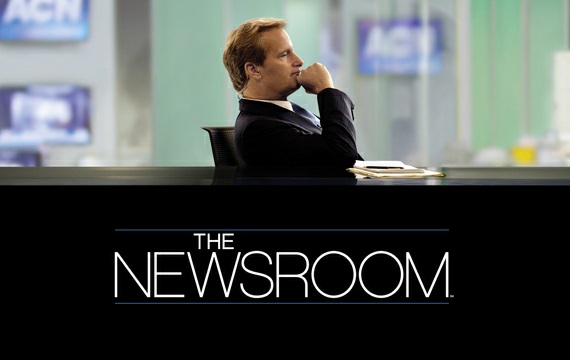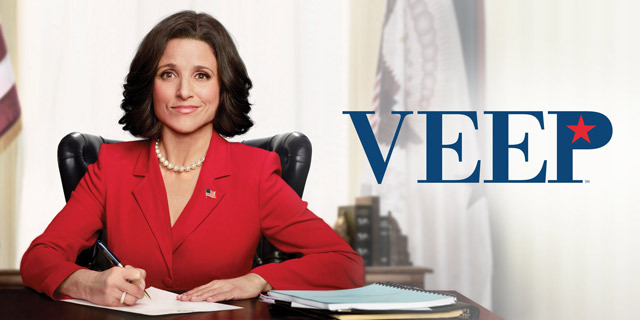This guest post by Katherine Murray appears as part of our theme week on Child and Teenage Girl Protagonists.
Ja’mie: Private School Girl features a drag performance from Australian comedian Chris Lilley that’s sometimes funny and sometimes uncomfortable to watch. Join me as I do the least funny thing in the world, and try to explain how a joke works.
Power dynamics mean something in comedy. Making fun of someone less powerful than you is sort of like beating up someone who’s small, or taking advantage of someone naive. It’s not very sporting, and it makes you look mean. The problem is that the same person can be powerful in some contexts and not in others. A rich, white 17-year-old girl, for example, might be very powerful in contexts where she’s bullying her classmates at school, but less powerful in contexts where she’s trying to meet the demands of a sexist culture. If you’re an adult man nearing 40, it’s hard to make fun of the way a teenage girl dresses, flirts, and moons over boys without starting to look kind of petty.
Currently airing on HBO, Ja’mie: Private School Girl has plenty of funny moments as well as plenty that seem more mean-spirited, and the combination creates an uncomfortable viewing experience. Ja’mie, portrayed by Lilley, is a narcissistic and socially tone-deaf villain who was previously featured in We Can Be Heroes: Finding the Australian of the Year and Summer Heights High. Like The Office’s David Brent before her, Ja’mie craves admiration from others, but rarely does anything commendable. Instead, she inadvertently reveals herself to be racist, snobbish, bullying, and homophobic, while trying to sing her own praises. Private School Girl is the first series to focus exclusively on Ja’mie, following her through her day-to-day life as she prepares to graduate from the exclusive Hillford Girls Grammar School, and attempts to win the coveted Hillford Medal.
Ja’mie is one of Lilley’s most popular characters, and it isn’t hard to see why. A quick YouTube search returns some really funny clips from Heroes and Summer Heights High, where most of the comedy comes from Ja’mie’s hypocrisy. In Heroes, Ja’mie tries to gain recognition for her charity work—sponsoring African children through a World Vision analog—but reveals herself to be shallow and racist as soon as she tries to explain the project. She admits that she doesn’t know the names of any of the children she sponsors, because their names are “weird,” but she sings to their pictures “in their language” by making up words and clicking her tongue. When she learns that most of the children she sponsors were killed in a horrible flood, she’s devastated by the idea that this might hurt her chances at winning Australian of the Year, and calls the charity to make a customer complaint.
In Summer Heights High, Ja’mie is an exchange student at the titular public school, and she continually insults her classmates for being poor and ugly under the guise of finding common ground. She introduces herself by giving a prepared speech about how private school students are more likely to go to university and earn more money, whereas wife-beaters and rapists are statistically more likely to come from public schools. “People always go, ‘Private schools create better citizens,’”she says, “But I would say they create better quality citizens.” Later, when she campaigns for an end-of-year dance, she begins by telling everyone that dances give poor people (or “povos”), like them, something to live for. Under her leadership, the dance then becomes so expensive that no one can afford to buy tickets.
As of this writing, four of Private School Girl’s six episodes have aired, and the funniest moments rely on the same type of humour—scenes where Ja’mie congratulates herself for being nice to everyone, juxtaposed with documentary-style footage of her bullying other students. Fittingly, her nemesis at Hillford is an unpretentious girl named Erin who seems genuinely nice, and cares about helping others. Ja’mie recoils in disgust whenever Erin says or does anything heartfelt, and hypocritically accuses her of faking kindness in order to be admired. Though one might wish there were more characters for Ja’mie to play against, those scenes work really well, as do most of the scenes where we see Ja’mie whiplash between the falsely humble face she wears around people she wants to impress, and the vicious, Eric Cartman-like monster within.
Unfortunately, there are other scenes in Private School Girl where it seems like the joke is just “Ha! She’s a girl!” which makes things a little uncomfortable. Chris Lilley also gave this cringey interview where he said that straight guys love the show, because “The show is sort of like making fun of girls. It’s doing all the annoying things that our girlfriends do.” Unless the annoying things their girlfriends do include grossly misusing charity outreach programs and tyrannizing strangers at school, I’m not sure that “annoying things girls do” is an awesome target for a grown man’s comedy—especially when the annoying things aren’t otherwise hurting anyone else.
For example, there are lot of scenes where Ja’mie and her friends talk over each other excitedly, dissolving into a wall of noise and screeching for seemingly endless minutes. In the first episode, there’s a scene where they goof around, taking a long time to say goodbye to each other, yelling back and forth about how they’ll miss each other SO MUCH, and how they’re best friends, before running back for hugs. There are scenes that are just about Ja’mie being excited because a cute boy accepted her friend request on Facebook, or because she gets to throw a party. In most of these instances, the events aren’t exaggerated to the point that they become absurd and therefore funny — instead, they feel like a fairly true-to-life impression of a certain type of teenage girlhood, and it feels like the show takes for granted that it’s OK to just make fun of that.
From a practical standpoint, the scenes aren’t particularly funny — they feel too much like watching a real reality show, where people you don’t particularly like have conversations that aren’t particularly important. At the same time, there’s an uncomfortable undercurrent, since the inclusion of most of these scenes tells us that they were supposed to be funny—that there’s supposed to be something inherently laughable in the way that (some) teenage girls talk to each other, or the way they express their emotions—so laughable that you don’t even need to make up a joke for the scene; you just have to show it. As satire, it’s a far cry from the wicked hypocrisy of Ja’mie’s charity mission in Africa.
There are other jokes, though, that cut a little closer to the bone, and most of them involve Ja’mie’s brazen but awkward sexuality. Mistakenly believing herself to be a good dancer, she repeatedly tries to gain attention by performing sexually charged (or “slutty”) choreography and undoing the top buttons on her uniform to show her bra. She flirts with her school principal and, when a boy stays over at her house, she makes sure to casually pass by his room wearing only a towel. She constantly seeks reassurance that she’s not fat, while obsessing over the idea that her breasts are too small, and there’s an ongoing plot about the etiquette of sexting. Internet spoilers assure me that the ongoing discussion of Ja’mie’s breasts, and whether or not she should flash them, is building toward conflict in the final episodes, but, as others have pointed out, it isn’t always clear whether the show is making fun of Ja’mie or of the culture that’s placed her in this position.
When it comes to sex, teenage girls are at a disadvantage. They’re subject to conflicting demands, telling them both that the need to be sexually available and that sexual availability is not OK—they inhabit a world where developing a sexual identity is a Choose Your Own Adventure that always ends in scorn. Although I’ll withhold judgement about the finale until I’ve seen it, there’s an uncomfortable sense that Private School Girl has so far treated Ja’mie’s conflicted sexuality as another instance of her personal hypocrisy—that she’s pretending to be modest when really she’s the kind of girl who wants to flash her tits, or she’s pretending to be sexually experienced when really she’s too frigid to get it on—rather than a relic of a culture that would shame her both for wanting and not wanting sex.
Altogether, Private School Girl works really well when its satire is aimed at racists, bullies, and snobs, but significantly less well when it’s aimed at the more diffuse target of “girls.” Watching it, you come away with the sense that Chris Lilley has gotten a little bit too good at playing this character; that he’s revelling in his ability to imitate a certain set of mannerisms, while the point of the joke has been lost.
Katherine Murray is a Toronto-based writer and couch potato who yells about TV on her blog.
